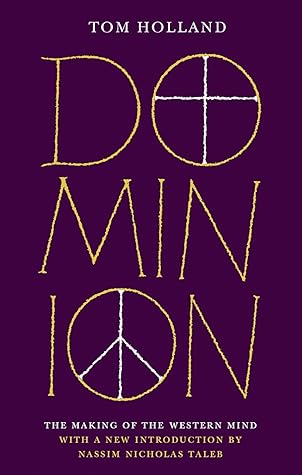More on this book
Community
Kindle Notes & Highlights
To an age which – in the shadow first of Alexander’s empire, and then of Rome’s – had become habituated to yearnings of a universal order, Paul was preaching a deity who recognised no borders, no divisions.
The gospel proclaimed by Paul, the conviction that had animated him and all the first generation of Christians, the revelation that a crucified criminal had in some unspecified but manifest way been an aspect of the very Creator of the heavens and the earth, constituted the molten heart of Christianity.
The young emperor, sincere though he was in his hatred of ‘Galilean’ teachings, and in regretting their impact upon all that he held most dear, was blind to the irony of his plan for combating them: that it was itself irredeemably Christian.
As never before, the ambition of the Church to provide a salvation to peoples of every race and background had become a weapon to be turned against all who spurned its offer.
If reason had no role to play in fathoming the mysteries of faith, then in its proper sphere, where the stars moved on their inexorable course, and the birds sang their songs of love to their creator, and ‘grass and flowers laugh out to him’,40 it existed to reveal to mortals the traces and purposes of God.
Confucian philosophy, in its fundamentals, was perfectly compatible with Christianity.
Voltaire, when he sketched a portrait of Calas broken on the wheel, could not help but evoke in the imaginings of his readers the image of Christ on the cross. The standards by which he judged Christianity, and condemned it for its faults, were not universal. They were not shared by philosophers across the world. They were not common from Beijing to Cayenne. They were distinctively, peculiarly Christian.
Franklin, like the revolution for which he was such an effective spokesman, illustrated a truth pregnant with implications for the future: that the surest way to promote Christian teachings as universal was to portray them as deriving from anything other than Christianity.
The problem of how a defiantly distinctive culture that reached back millennia might best be squared with a secular order shot through with Christian assumptions was one that lacked a ready solution. The search for it, though, could hardly be ducked. Jews had little option, then, but to continue negotiating the boundaries of secularism, and to hope for the best.
To rule foreign peoples – let alone to plunder them of their wealth, or to settle their lands, or to hook their cities on opium – was also, for a Christian people, never quite to forget that their Saviour had lived as the slave, not the master, of a mighty empire. It was an official of that empire who had sentenced him to death; it was soldiers of that empire who had nailed him to a cross. Rome’s dominion had long since passed away. The reign of Christ had not.
Here, with this theory of evolution, he was inflicting on natural theology something of the hideous fate visited by an ichneumon on its host.
To believe that God had become man and suffered the death of a slave was to believe that there might be strength in weakness, and victory in defeat. Darwin’s theory, more radically than anything that previously had emerged from Christian civilisation, challenged that assumption. Weakness was nothing to be valued. Jesus, by commending the meek and the poor over those better suited to the great struggle for survival that was existence, had set Homo sapiens upon the downward path towards degeneration.
Truth that could be neither demonstrated nor proven, truth that was dependent for its claims on a purportedly supernatural revelation, was not truth at all. Science – as a practitioner of the fashionable new art of photography might have put it – was defined by its negative: religion.
Yet Hitler, even as he cast his campaign against them as a matter of public health, would often assimilate it to another narrative: a profoundly Christian one. To be saved, the world had to be cleansed.
‘A diffusive philanthropy is Christianity itself. It requires perpetual propagation to attest its genuineness.’16 Such was the mission statement of the era’s most famous explorer, David Livingstone.
Repeatedly, whether crashing along the canals of Tenochtitlan, or settling the estuaries of Massachusetts, or trekking deep into the Transvaal, the confidence that had enabled Europeans to believe themselves superior to those they were displacing was derived from Christianity. Repeatedly, though, in the struggle to hold this arrogance to account, it was Christianity that had provided the colonised and the enslaved with their surest voice. The paradox was profound.
Communist dictators may have been no less murderous than fascist ones; but they – because communism was the expression of a concern for the oppressed masses – rarely seem as diabolical to people today. The measure of how Christian we as a society remain is that mass murder precipitated by racism tends to be seen as vastly more abhorrent than mass murder precipitated by an ambition to usher in a classless paradise.
Crucifixion was not merely a punishment. It was a means to achieving dominance: a dominance felt as a dread in the guts of the subdued. Terror of power was the index of power. That was how it had always been, and always would be. It was the way of the world. For two thousand years, though, Christians have disputed this. Many of them, over the course of this time, have themselves become agents of terror. They have put the weak in their shadow; they have brought suffering, and persecution, and slavery in their wake. Yet the standards by which they stand condemned for this are themselves
...more


